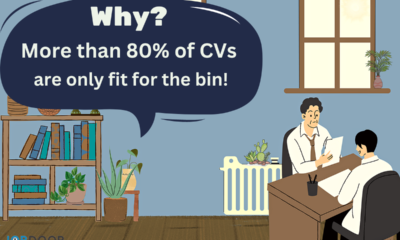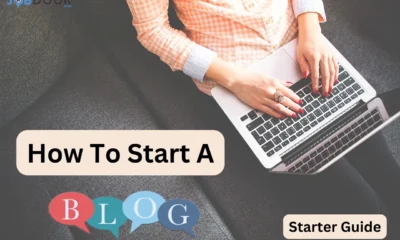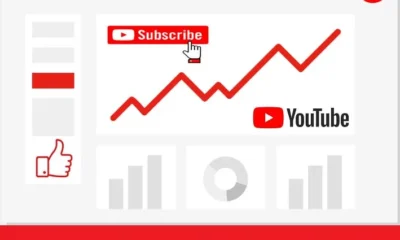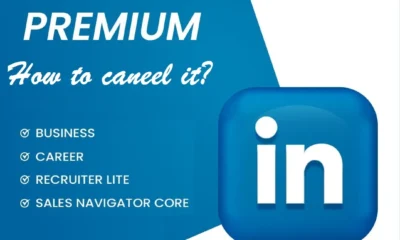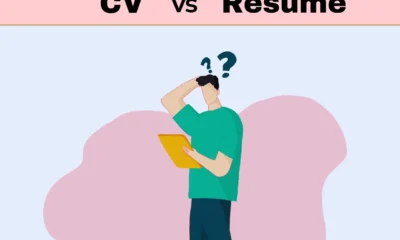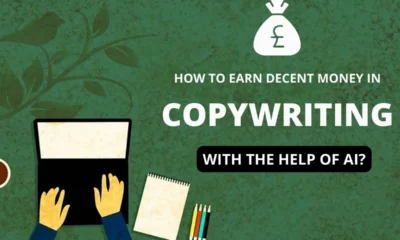Career
CV vs Resume: What are the Key Differences?
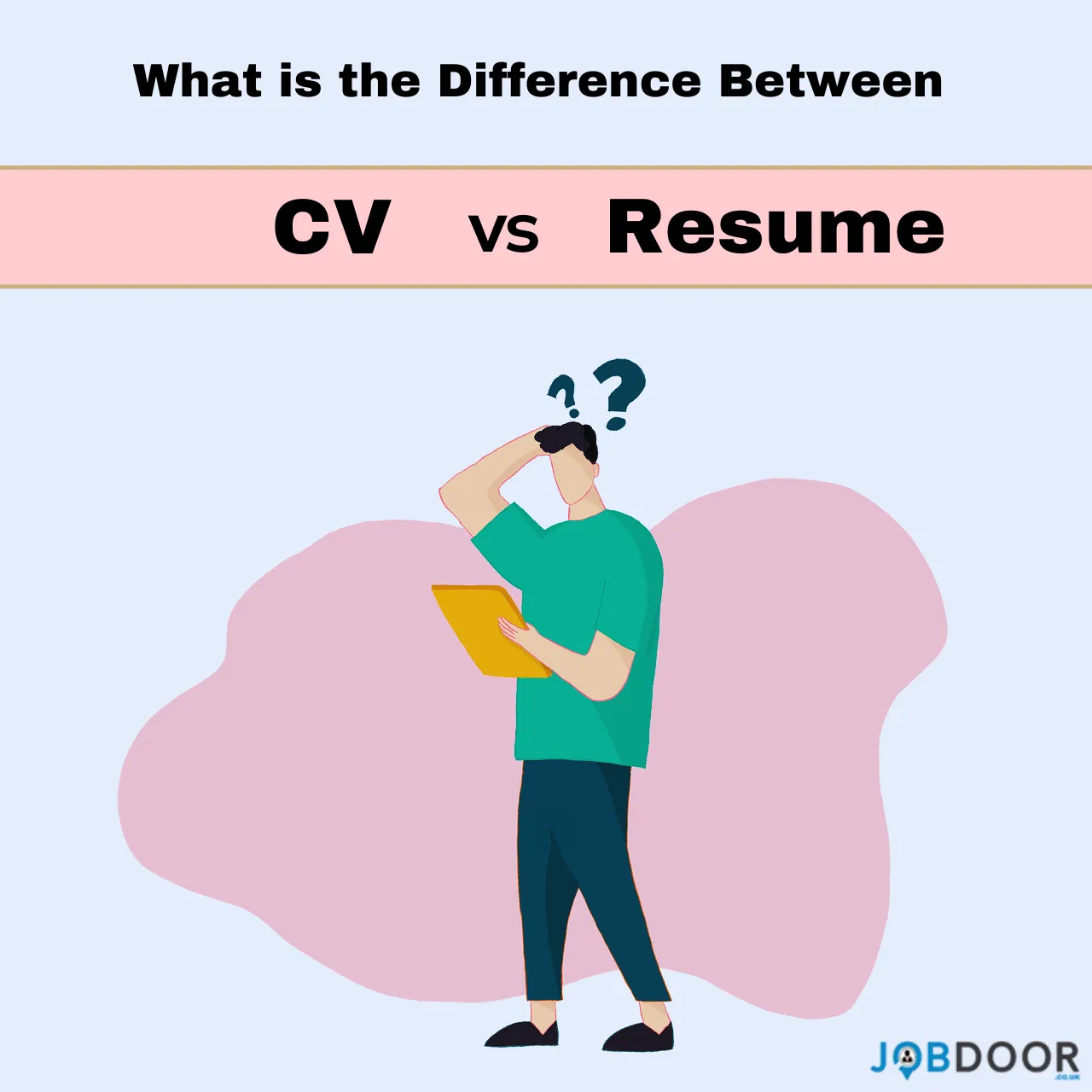
This guide will show you the differences between a CV and a resume and give you everything you need to know to create either one!
I still remember the night before my big job interview, and I was frantically updating my resume. I had spent hours perfecting the layout, choosing the right words, and double-checking for any typos. As I stared at the screen, I couldn’t help but wonder – should I be creating a CV instead?
The truth is the lines between a CV (curriculum vitae) and a resume can get a bit blurry. They’re both important tools in your job search, but there are some key differences you need to know. Whether you’re a recent graduate or an experienced professional, understanding these distinctions can give you a major advantage.
So, let’s explore the world of CVs and resumes, shall we?
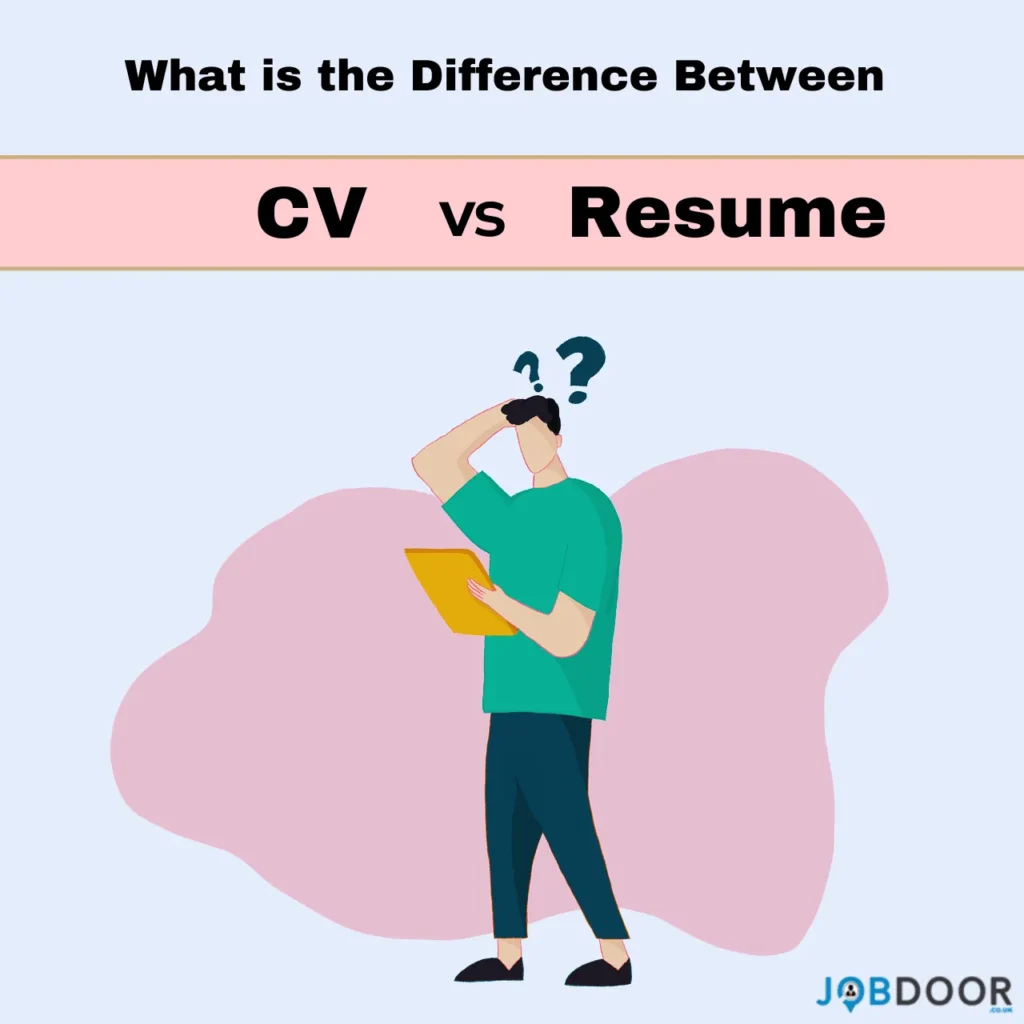
What is the Difference Between CV and Resume?
At their core, a CV and a resume serve the same purpose – to showcase your skills, work experience, and qualifications to a potential employer. However, the way they’re formatted and the amount of information they contain can vary greatly.
Resume:
A resume is typically a concise, one-page document that highlights your most relevant work history, education, and key achievements. It’s designed to give the employer a quick, high-level overview of your background. Resumes are often used for more traditional job applications, especially in the United Kingdom.
CV:
On the other hand, a CV is a more detailed and comprehensive document that can span multiple pages. It provides a complete chronological record of your academic and professional history, including publications, awards, certifications, and other accomplishments. CVs are more commonly used in academia, research, or international job searches.
The Length Factor:
One of the most obvious differences between a CV and a resume is the length. As mentioned above, a resume should typically be just one page, while a CV can be several pages long. To precise resumes are to be no longer than 1-2 pages, while for CVs, there is no real rule or limit to how many pages it can have. However, it would seem that most CVs fall between 2-8 pages.
This is because a CV is meant to be a more in-depth representation of your entire career journey. It allows you to showcase the breadth and depth of your experience, education, and achievements. A resume, on the other hand, is designed to be a concise summary of your most relevant qualifications.
The level of detail you include in a CV can also vary depending on your field and the specific requirements of the job you’re applying for. For example, an academic CV for a research position might be much more extensive than a CV for a corporate job. One of more we would like to add here is that more than 80% of CVs are only fit for the dustbin so be care when writing one read our full guide.
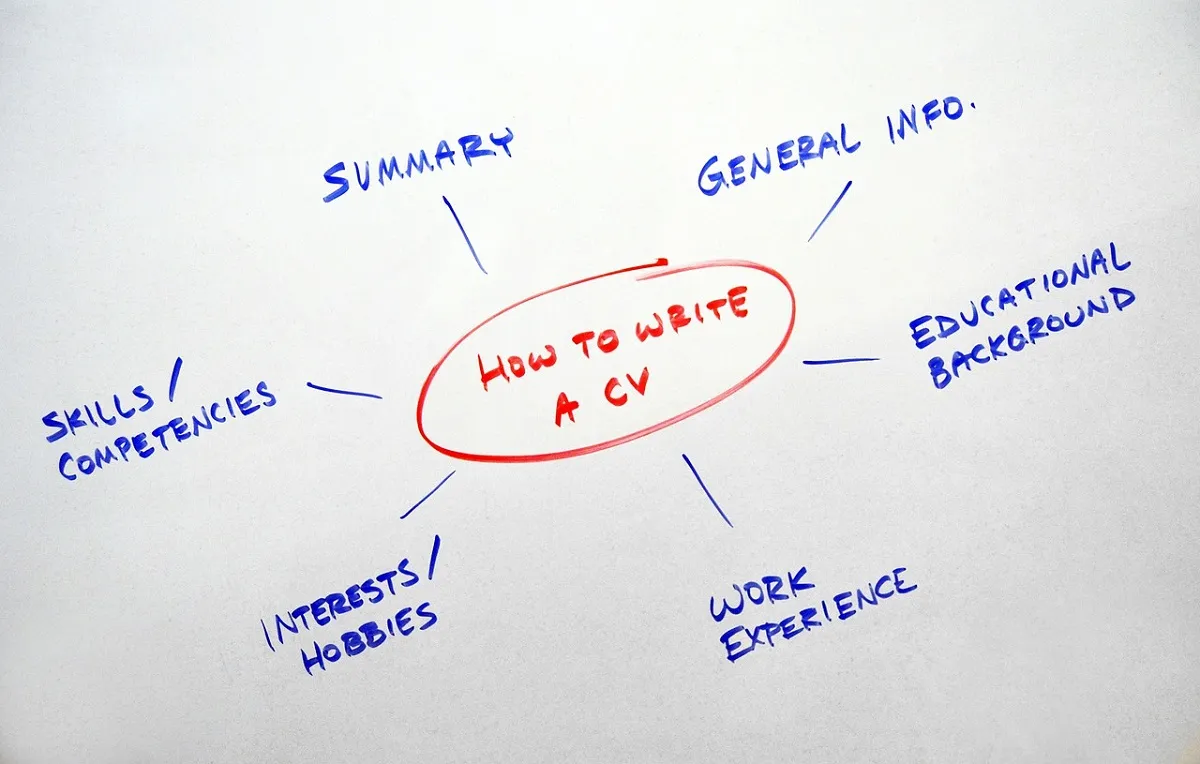
What to include on a CV:
- Contact information
- Education
- Skills
- Certificates
- Publications
- Presentations
- Research interests and experience
- Awards & honors
- Work experience
- Languages
- References
What to include on a Resume:
- Personal Details
- Qualification
- Skills
- Work experience
- Certifications
- Current job
- Languages
- Contact information
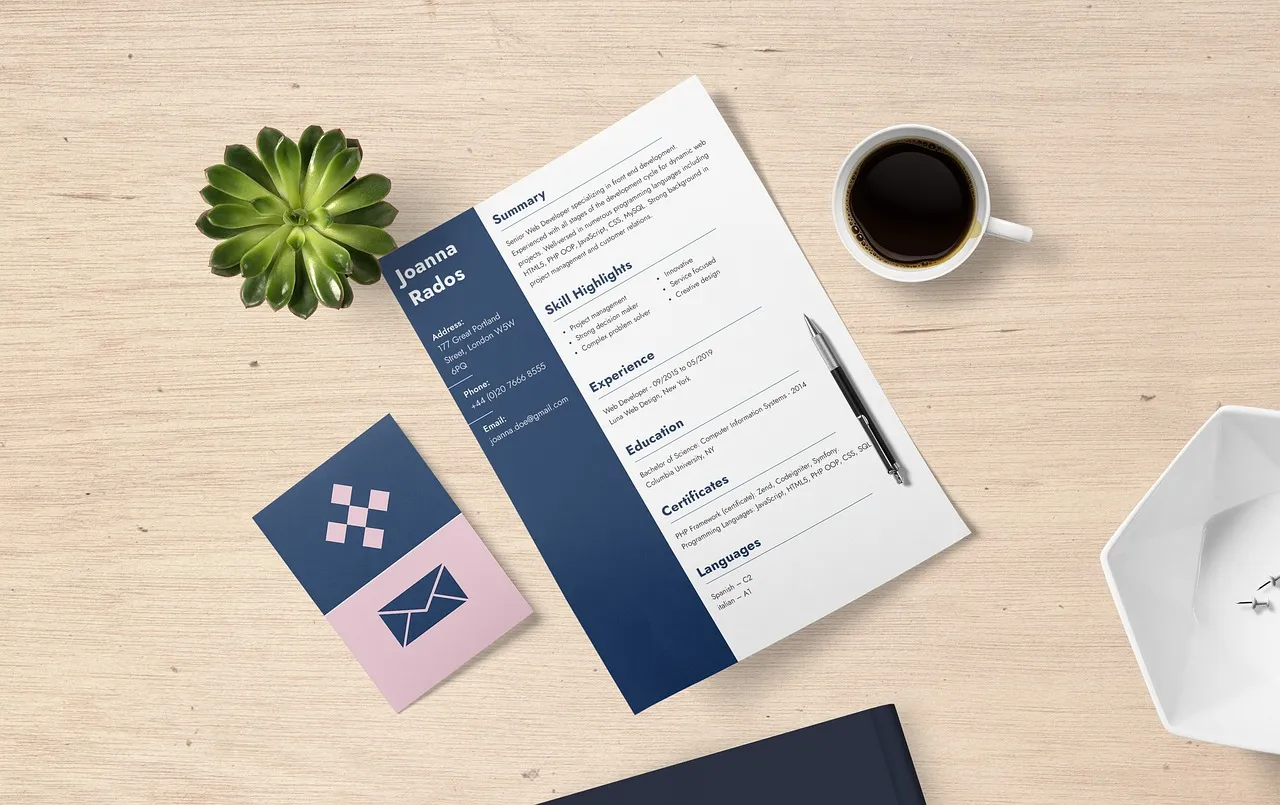
Tailoring Your Approach:
Another key difference is the level of customization required for each application. With a resume, you’ll want to tailor it to the specific job you’re applying for, highlighting the skills and experience that are most relevant. This might mean rearranging the order of your work history, emphasizing certain accomplishments, or even removing irrelevant information.
CVs, on the other hand, tend to be more static documents that you can use across multiple applications. While you may still want to adjust the order or emphasis of certain sections, the overall structure and content of your CV will typically remain the same.
That said, it’s important to remember that both your resume and CV should be regularly updated to ensure they accurately reflect your current skills and experience.
The Positive and Negative Sides:
Now that we’ve covered the basics, let’s explore the pros and cons of each approach.
The Positive Side of Resumes:
- Concise and easy to scan, making it more likely to catch the employer’s attention
- Allows you to highlight your most relevant and impressive qualifications
- Faster and easier to customize for each job application
The Negative Side of Resumes:
- Limited space means you may have to omit important details or achievements
- Employers may perceive a one-page resume as lacking depth or substance
- Harder to showcase the full breadth of your experience and qualifications
| Also Read: How to Prepare for Remote Interviews? |
The Positive Side of CVs:
- Provides a comprehensive and detailed record of your academic and professional background
- Allows you to showcase a wider range of accomplishments, publications, and certifications
- Demonstrates your depth of knowledge and expertise in your field
The Negative Side of CVs:
- Can be time-consuming to create and update
- Longer length may make it harder for employers to quickly identify your most relevant qualifications
- Some employers may prefer a more concise and focused resume
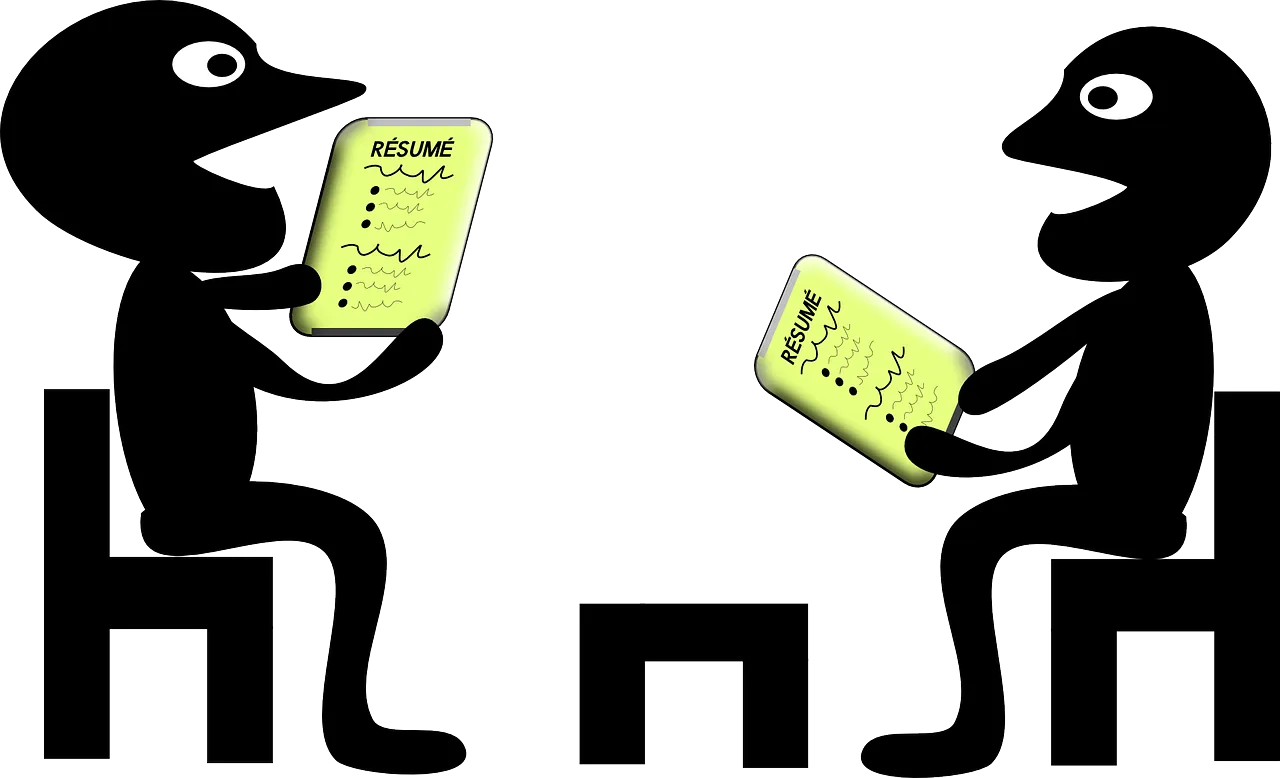
Which One Do You Use CV or Resume?
So, how do you know which one to use? The answer really depends on the specific job and industry you’re targeting.
If you’re applying for a more traditional corporate or business role, a resume is probably the way to go. But if you’re pursuing an academic, research, or international position, a CV may be the better choice.
Regardless of which route you choose, here are some tips to help you create a standout document:
- Research the employer’s preferences. Some job postings may explicitly state whether they want a resume or CV. Make sure to follow their instructions.
- Highlight your most impressive and relevant accomplishments. Don’t be afraid to showcase your achievements, awards, and special skills.
- Use clear, concise language and formatting. Make it easy for the employer to quickly scan and understand your qualifications.
- Tailor your document to the specific job. Emphasize the skills and experience that directly match the role you’re applying for.
- Proofread, proofread, proofread. Double-check for any typos or errors before submitting your application.
| Also Read: 12 IT Jobs That Don’t Require Coding Skills |
Examples and Case Studies:
To bring these concepts to life, let’s take an example:
Let’s say Sarah, a recent college graduate, was applying for entry-level marketing positions. She created a one-page resume that highlighted her internship experience, relevant coursework, and impressive academic achievements. This allowed her to showcase her qualifications in a concise and compelling way.
On the other hand, Dr. Michael, a tenured professor, used a detailed CV when applying for a research fellowship. His CV included a comprehensive list of his published papers, conference presentations, and awards, demonstrating his extensive expertise in the field.
By understanding the differences between a CV and resume, both Sarah and Dr. Michael were able to tailor their application materials to the specific requirements of the roles they were pursuing.
So, if you want to describe this in one sentence then “Resume is like a fresher (beginner) and CV is an experienced professional”.
Visual Example of a CV:
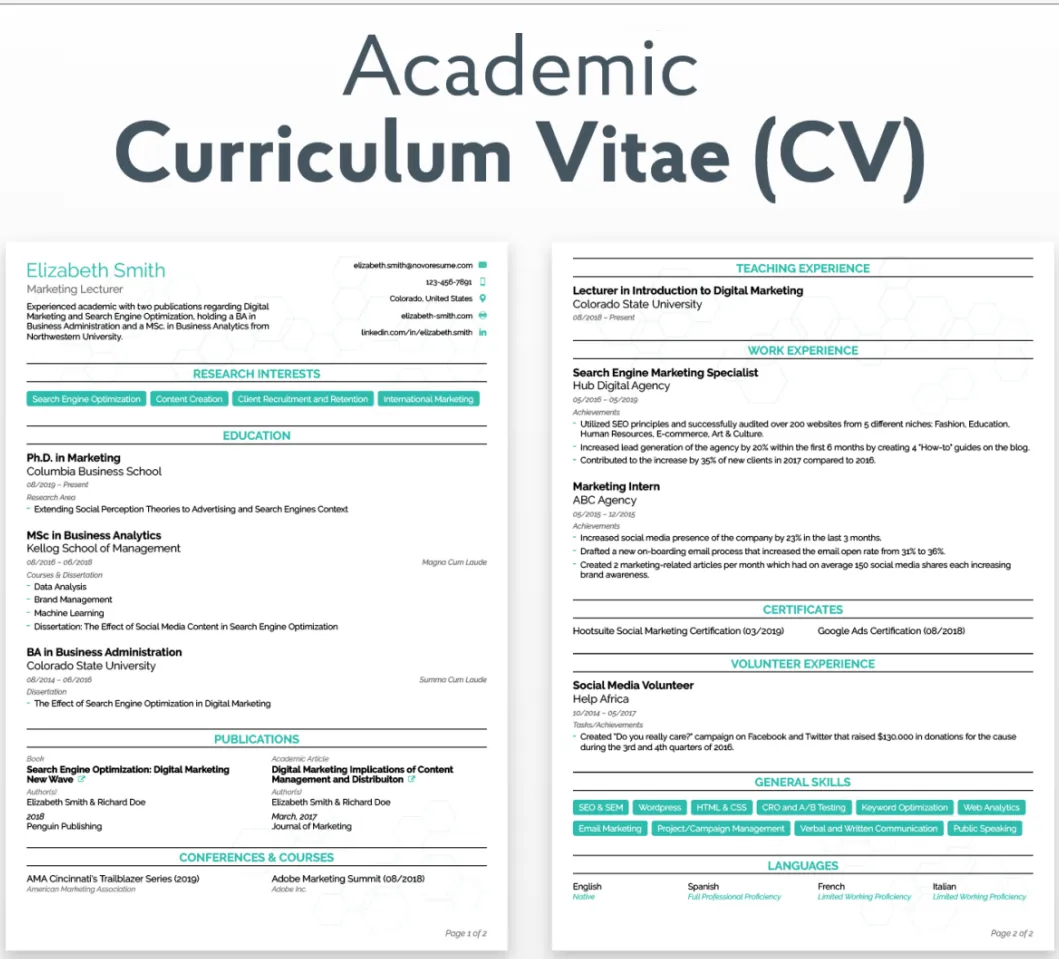
Visual Example of Resume:
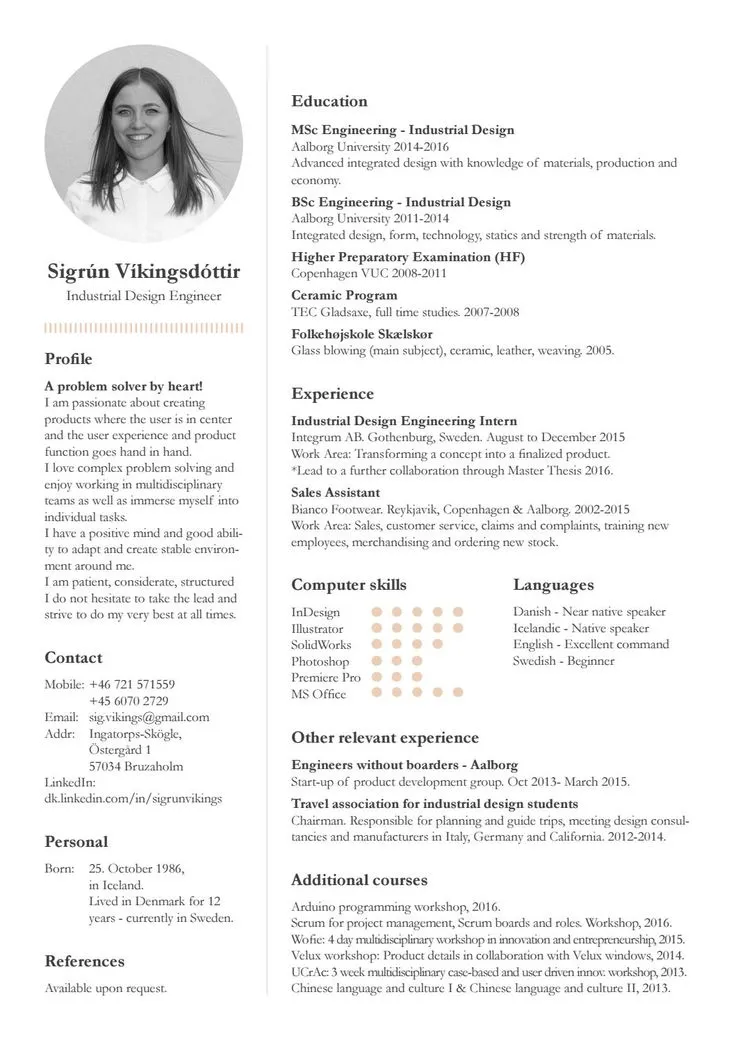
Creating a Connection:
At the end of the day, whether you choose a CV or a resume, the goal is to present your qualifications in the most effective way possible. By understanding the nuances between these two important documents, you can position yourself as the ideal candidate and make a lasting impression on potential employers.
So, the next time you’re preparing for a big job interview, don’t stress about whether to use a CV or resume. Instead, embrace the opportunity to showcase your unique story and experience. After all, you’ve got this – and I’m rooting for you every step of the way!
Career
The Advantages of Hiring BAME Candidates
Are you looking to diversify your workforce? Have you considered hiring Black, Asian and Minority Ethnic (BAME) candidates? Hiring a diverse workforce can bring a range of benefits to your organisation. Today, we are going to discuss the advantages of hiring BAME candidates and how it can positively impact your company.
Research has shown that diverse teams are more innovative and creative. When individuals with different backgrounds and perspectives come together, they can bring new ideas and solutions to the table. This can lead to increased productivity and better decision-making. Additionally, having a diverse workforce can help your company better understand and connect with a wider range of customers and clients.
Furthermore, hiring BAME candidates can also help to improve your company’s reputation. By demonstrating a commitment to diversity and inclusion, you can attract a wider pool of talent and customers who value these principles. Additionally, having a diverse workforce can help to reduce unconscious bias and promote a more inclusive culture within your organisation. Overall, hiring BAME candidates can bring a range of benefits to your company and help to create a more equitable and inclusive workplace.
According to Business In The Community (BITC):
- 29% of both white and BAME candidates secured jobs when applying directly to an employer.
- 44% of white candidates but only 29% BAME candidates were offered jobs when applying through a recruitment agency.
| Also Read: How to Find Your Perfect Green Job? |
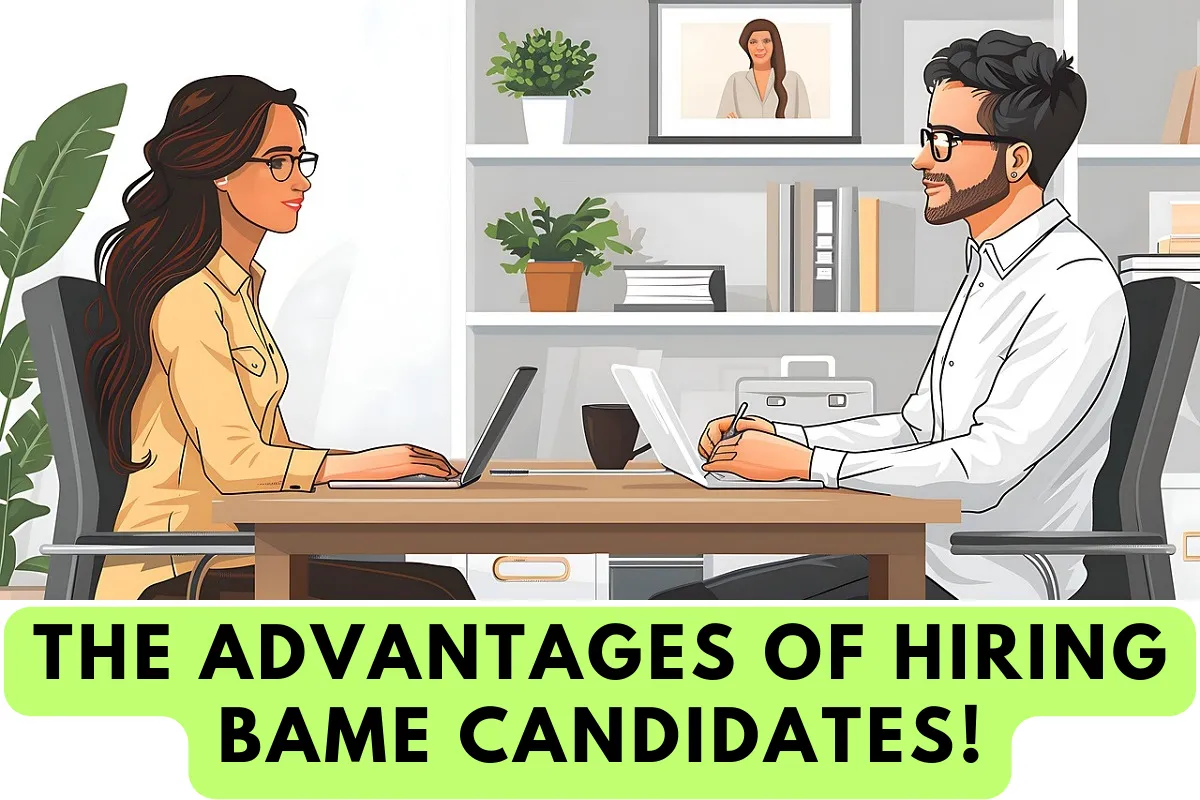
Image: Pixabay
1. Enhanced Creativity and Innovation:
When it comes to driving innovation and creativity, diversity is key. Hiring BAME candidates can bring fresh perspectives and ideas to the table that may not have been considered before.
Diverse Perspectives:
BAME applicants come from a variety of cultures and backgrounds, which can provide a wealth of diverse perspectives. These perspectives can help to challenge the status quo and encourage new ways of thinking. When individuals with different work experience and viewpoint come together, they can collaborate to create innovative solutions that may not have been possible otherwise.
Problem-Solving Skills:
They often have unique problem-solving skills that can benefit the organization. They may have experience overcoming challenges that are different from those faced by other employees, which can bring a new level of creativity to the table. Additionally, they are more adaptable and able to think on their feet, which can be invaluable in fast-paced work environments.
Broader Market Understanding:
They can bring a wealth of benefits to your organisation. One of the most significant advantages is a broader market understanding. By hiring them, you can gain valuable insights into different cultures and communities. This can help you to better understand your customers and improve your business practices.
Cultural Competence:
They can bring a high level of cultural competence to your organisation. They have a unique perspective on the world and can offer valuable insights into different cultures and customs. This can be particularly useful if your company operates in a global market or has customers from diverse backgrounds.
Customer Insights:
BAME candidates can also provide valuable customer insights. They may have a better understanding of the needs and preferences of customers from different backgrounds, which can help you to tailor your products and services to better meet their needs.
By hiring BAME candidates, you can tap into a wider pool of knowledge and expertise. This can help you to develop more effective marketing campaigns, improve customer service, and ultimately increase your bottom line.
In conclusion, hiring BAME candidates can bring a range of benefits to your organisation, including a broader market understanding. By embracing diversity and inclusivity, you can create a more innovative and successful business that is better equipped to meet the needs of a diverse range of customers.
| Also Read: 10 Key Factors for Workplace Success |
2. Improved Company Reputation:
Hiring BAME candidates can help improve your company’s reputation in various ways. Here are some of the benefits you can expect:
Corporate Responsibility:
By hiring BAME candidates, you demonstrate your commitment to diversity and inclusion in the workplace. This can help you build a positive image as a socially responsible company that values and respects people from different backgrounds.
Many job seekers today prefer to work for companies that share their values and beliefs. By creating a diverse and inclusive workplace, you can appeal to a wider pool of candidates and increase your chances of finding the right people for your team.
Brand Loyalty:
Consumers today are more conscious about the social and environmental impact of the companies they do business with. They are more likely to support companies that align with their values and beliefs. By promoting diversity and inclusion, you can build brand loyalty among customers who value these principles.
In fact, a study by Accenture found that 41% of consumers have shifted their business away from a company that they perceived as not being inclusive. By contrast, companies that are seen as inclusive can benefit from increased customer loyalty, positive word-of-mouth, and a stronger brand reputation.
3. Higher Employee Engagement:
When you hire BAME candidates, you increase employee engagement in your workplace. Here are some reasons why:
Inclusivity and Belonging:
You can show the world that you value diversity and inclusivity in your workplace. This creates a sense of belonging among all employees, which leads to higher engagement levels. When employees feel like they are part of a team that values and respects them, they are more likely to be invested in their work and the success of the company.
Retention Rates:
It will also improve your retention rates. When employees feel like they are part of an inclusive workplace, they are more likely to stay with the company long-term. This reduces turnover rates and saves you money on recruiting and training new employees. For more insights on creating a positive work environment, check out our article on How to Improve Your Recruitment Strategy to Hire the Best Talent?
4. Competitive Advantage:
There are several competitive advantages that your business can benefit from. These advantages can help your company stand out from the competition and attract top talent.
Talent Attraction:
One of the main advantages of hiring BAME candidates is that it can help your business attract a more diverse range of talent. By actively seeking out BAME candidates, you are sending a message that your company values diversity and is committed to creating an inclusive workplace.
This can be a powerful message to potential candidates, especially those who come from diverse backgrounds. By demonstrating that your company is committed to diversity and inclusion, you can attract a wider pool of talented candidates who may not have considered your company otherwise.
By hiring BAME candidates, you can bring new perspectives and ideas to your team, which can lead to better outcomes for your business. Additionally, having a diverse team can help you better understand and serve a wider range of customers and clients, which can be a competitive advantage in today’s global marketplace.
Conclusion:
Overall, hiring BAME candidates can provide your business with a significant competitive advantage. By attracting top talent and improving your business performance, you can position your company for long-term success in a rapidly changing world.
Career
A Cover Letter is NOT Optional! Here Are Some Valid Reasons
What’s the value of writing a cover letter? Why do you need that if you are going to submit your resume? Does that not tell the entire story? NO WAY. Simply sending a resume is not enough. A cover letter is important. No cover letter with your resume is like leaving your house with a shirt and no pants. You wouldn’t do that, would you?
If you’re currently in the process of applying for jobs, you’ve probably come across the debate on whether or not a cover letter is necessary. Some people argue that a well-crafted resume is enough to showcase your qualifications, while others believe that a cover letter is a crucial component of a job application.
A good cover letter can prove in a few sentences that:
1. You understand the company’s opportunities and challenges
2. You are directly tied to the solution they need
3. You’ve experienced their situation before
4. You’ve delivered the kind of value they are looking for before
5. You are the right fit for the company.
A cover letter is a crucial part of any job application as it provides a platform to include every necessary detail that might not be covered in a resume. It allows you to personalize your application, showcase your personality, and explain why you are the perfect fit for the position.
A well-written cover letter highlights your key achievements, skills, and experiences that make you stand out from other candidates. It also demonstrates your interest in the company and the specific role you are applying for. Employers often use cover letters to gauge your communication skills, professionalism, and attention to detail.
Just a few sentences and bullet points to pique their interest and deliver your value message. That’s the value of a cover letter. Resumes today get about 10 seconds to impress. If your cover letter piques interest before the hiring manager turns to your resume, you just might earn some more of his or her valuable time. Therefore, taking the time to craft a strong cover letter can greatly increase your chances of securing an interview and landing the job.
| Also Read: How AI Can Help You Land Your Dream Job? |
| Also Read: 13 Best Jobs That Artificial Intelligence Can’t Replace |
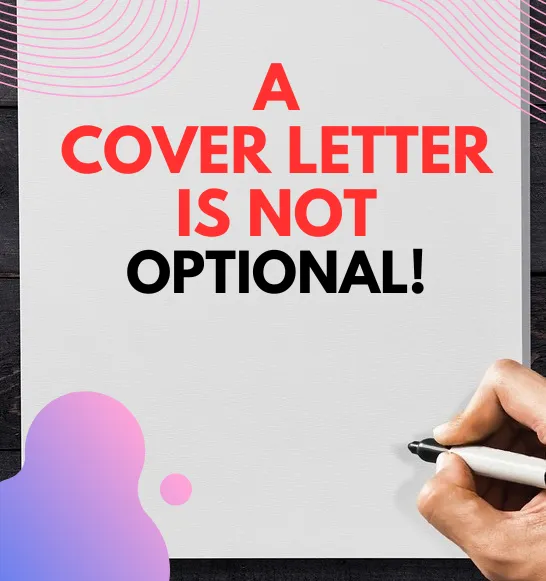
Your cover letter is part of the resume package. The ‘package’ is not complete without the cover. Will everyone read the cover? Probably not. While I haven’t done a full study of how many HR consultants read them vs. those that don’t, I can tell you this: when I worked in human resources, I ALWAYS read them. I gained a better understanding of the candidate, what underlying skills he possessed and how he might contribute to the organization I represented.
Here are some valid reasons why a cover letter is a very important complement to your resume:
Your introduction:
Your cover letter serves as your introduction. You don’t expect to walk into someone’s house through their kitchen, right? The cover is your entranceway. Here, you can enter with grace, set the tone of what the reader should expect to see on the resume.
Add value to your role:
Your cover letter demonstrates your ability to put together a cogent sentence, or in this case many sentences about what you offer in a new position and how you can add value for a potential employer.
Showcasing your communication skills:
Another important reason to include a cover letter with your job application is to demonstrate your communication skills. A well-written cover letter shows that you can articulate your thoughts clearly and concisely, which is a valuable skill in any workplace. Additionally, it allows you to showcase your writing style and attention to detail, which can give the hiring manager insight into how you would communicate with colleagues and clients if hired.
Highlight your skills and experiences:
A cover letter is also a great opportunity to explain why you are a good fit for the role and the company. You can use the cover letter to expand on specific experiences or accomplishments that are relevant to the job, and to explain how your skills and work experience make you the ideal candidate. Your cover letter is an opportunity for you to highlight certain things that you might not have been able to include in the resume. For example, perhaps you have been designing model houses since childhood, but have worked in another industry and now want to enter architecture. A cover letter would be the optimal place to discuss such information and provide specific examples of what you have designed.
Addressing potential red flags:
If there are any potential red flags in your resume, such as employment gaps or a career change, a cover letter can provide context and explanations. This allows you to proactively address any concerns the hiring manager may have and to position yourself in the best possible light. By addressing these issues head-on in your cover letter, you can reassure the employer that you are the right candidate for the job despite any perceived shortcomings.
| Also Read: How to Prepare for Remote Interviews? |
| Also Read: Why More Than 80% of CVs Are Only Fit for the Dustbin? |
Standing out in a competitive job market:
A well-crafted cover letter with your application can help you differentiate yourself from other candidates and make a strong impression on the hiring manager. A compelling cover letter that showcases your personality, passion, and qualifications can give you a competitive edge and increase your chances of getting noticed by potential employers.
Keep your letter short and to the point:
Keeping your cover letter short ensures that you deliver impactful and relevant information efficiently, capturing the attention of busy hiring managers while respecting their time. Don’t drift off topic or try to explain things away. Just show that you understand the challenges and can deliver immediate value.
Here’s a good tip:
If you want to increase the chances that your cover letter will be read by a potential hiring manager, include it in the body of your email and attach the resume. By doing this, the hiring manager will only have to open one attachment and can quickly read the cover letter when opening your email.
So, the next time you’re applying for a job, be sure to include a cover letter to make a lasting impression on employers and boost your chances of securing your dream job! Here’s to your career success!
Career
What NOT to do in a Job Interview as a Candidate?
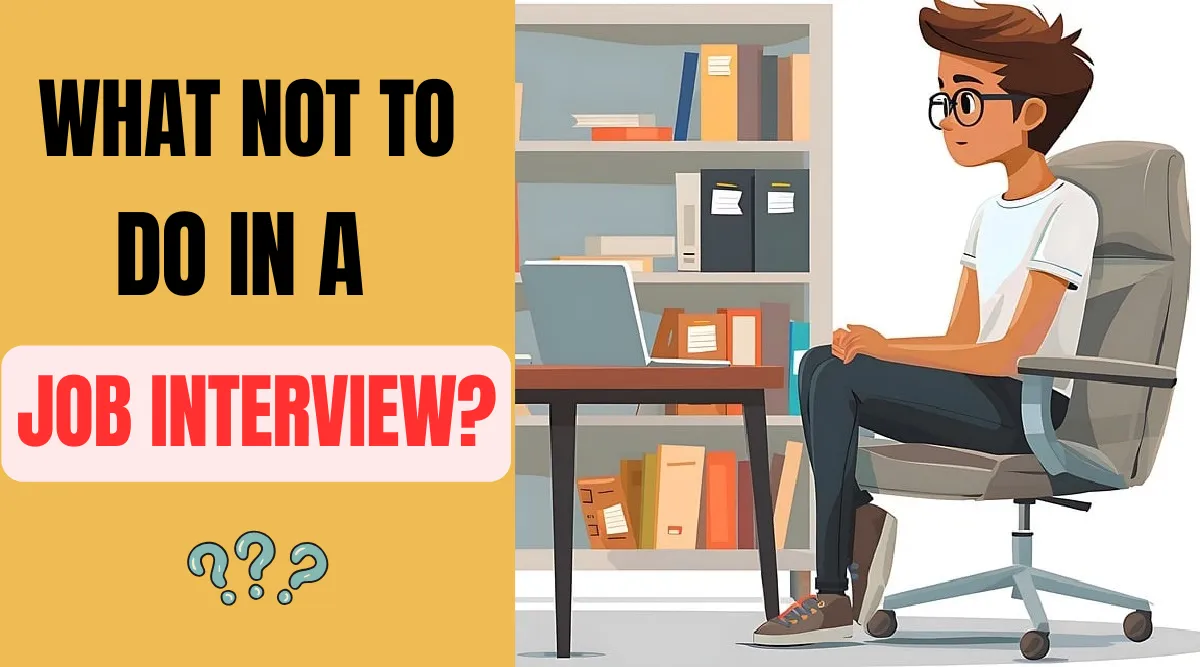
Hey there! So, you’ve landed a job interview – that’s awesome! But wait, before you go in for that interview, there are some things you should definitely NOT do. Trust me, I’ve been through my fair share of interviews and have learned some valuable lessons along the way. Let me share with you what NOT to do in a job interview.
The thought of crumbling in a job interview is daunting for anyone. Everyone has to do it at some point, but understanding the right interview etiquette can sometimes be hard to grasp. Advice based articles on what to remember to do in an interview are always bombarding the web, but job hopefuls need to be aware of what NOT to do. Leading graduate recruitment consultancy, Graduate Recruitment Bureau gives top tips on what to avoid ensuring a smooth and successful job interview:
[10 Things You Should NOT Do at an Interview]
1. Arriving overly late or early:
first and foremost, being late looks careless and unprofessional; one of the biggest mistakes you can make in a job interview is showing up late and being too early looks overly keen and a bit desperate. Arrive around 15 minutes early to read over notes you should have on the company and be prepared. Make sure you plan your route in advance, leave early, and account for any unexpected delays. You may not be in the interview room yet, but your first impression is definitely crucial.
2. Inappropriate presentation:
Nose rings, visible tattoos, scruffy hair, and informal clothes – none of these would go down too well in the interview room. Ensure to dress smart as it is a mark of respect for the interviewer and will show you are serious about the job role. Depending on the type of position, the expected form of dress may differ. For example, wearing a suit may be required if applying for a managerial role, whereas a more smart-casual look is accepted for positions with less responsibility. Remember, you only have one chance to make a first impression. Dress professionally and make sure your outfit is appropriate for the company culture. Whether its face-to-face or remote interview it’s always better to be overdressed than underdressed.
3. Lack of Preparation:
One of the worst things you can do in a job interview is not preparing beforehand. Make sure you research the company, practice common interview questions, and have a good understanding of the role you’re applying for. This shows that you’re serious about the opportunity.
Also Read : Most Common Competency Based Interview Questions and Answers
Also Read : How to Improve Your Communication Skills with ChatGPT?
4. Interrupting the interviewer:
Even if you think you have the most amazing answer to the interviewer’s question or you think you know what they are leading up to ask, stop and WAIT. Sit tight and wait until they have finished. You may misinterpret what they are saying and go off on a tangent which won’t come across well.
5. Badmouthing Previous Employers:
One big red flag in a job interview is badmouthing your previous employers even if your new employers are their competitors, you shouldn’t a bad word about them. This shows a lack of professionalism and can make the interviewer question your attitude and loyalty. Always speak positively about your previous experiences and focus on what you learned from them.
6. Being Dishonest:
And the most important thing is never lie or exaggerate your qualifications in a job interview. Being dishonest can come back to haunt you and can damage your credibility. Be honest about your skills and experiences and focus on how you can add value to the company. It is important to be genuine and truthful during interviews to build a foundation of trust and transparency with potential employers.
7. Keeping your phone on or answering your phone:
Simple but easily forgotten. Turn your phone off. And if it does not go off, do NOT answer it. Keep it in your bag, and do not even be tempted to look at it. Wait until you have left the interview – your texts and Facebook notifications can wait but the job opportunity can’t! So, using your phone during a job interview is a big no-no. It’s incredibly rude and disrespectful to the interviewer. Make sure you turn off your phone or put it on silent before the interview starts. Your full attention should be on the interview and nothing else.
8. Lack of Enthusiasm:
Another mistake to avoid is showing a lack of enthusiasm. Employers want to hire someone who is passionate about the role and excited to join their team. Enthusiasm can make you stand out as a candidate who is motivated, energetic, and eager to contribute. It can also create a positive impression on the interviewer, showcasing your excitement about the opportunity and your willingness to go above and beyond in the role. Make sure you demonstrate your enthusiasm through your body language, tone of voice, and overall attitude.
Also Read : Most Common Competency Based Interview Questions and Answers
Also Read : How to Improve Your Communication Skills with ChatGPT?
9. Talking Too Much:
While it’s important to showcase your skills and experiences in a job interview, talking too much can be a turn-off. Firstly, it can come across as though you are not listening or respecting the interviewer’s time, leading to a lack of effective communication. Additionally, talking excessively can make you appear nervous, unprepared, and potentially undermining your credibility as a candidate. Make sure you listen to the interviewer, answer questions concisely, and allow for natural pauses in the conversation. Remember, it’s a two-way dialogue.
10. Asking about holiday time or sick days:
Remember, you haven’t got the job yet so avoid asking holiday or salary questions. This sort of information would be discussed at the negotiation phase so do not bring this up unless the interviewer does. Our very own recruitment team experienced a candidate who enquired on the company’s disciplinary policies – and followed up with a question on how many written warnings are given out before dismissal – A perfect example of what NOT to do!
Author Note:
So, there you have it, hope these tips are helps you, my friends! Good luck and do share this article with your friends and family who are preparing for the interview!
-

 Career10 months ago
Career10 months agoCareer Opportunities for Seniors: 7 Jobs that are Perfect for Older Adults
-

 Job Description10 months ago
Job Description10 months agoGraphic Designer Job Description: Education, Salary, Skills, Work Hours
-

 News10 months ago
News10 months agoStudents’ question to UK PM Rishi Sunak: “What if your kids started smoking?
-

 Career9 months ago
Career9 months ago13 Best Jobs That AI Can’t Replace: A Guide to Future-proof Careers
-

 Money9 months ago
Money9 months agoHow To Get Paid to Read Books? (9 Best & Legit Sites)
-
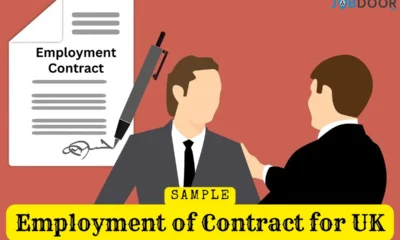
 Career7 months ago
Career7 months agoStandard Employment Contract Template Example for UK (Word & PDF)
-

 Job Description7 months ago
Job Description7 months agoSupport Worker Job Description: Qualifications, Skills, Salary, Working Hours
-

 News8 months ago
News8 months agoTop 10 Richest Countries in 2024 By GDP Per Capita

